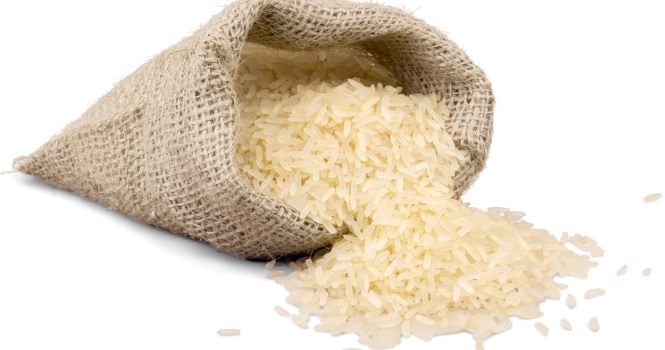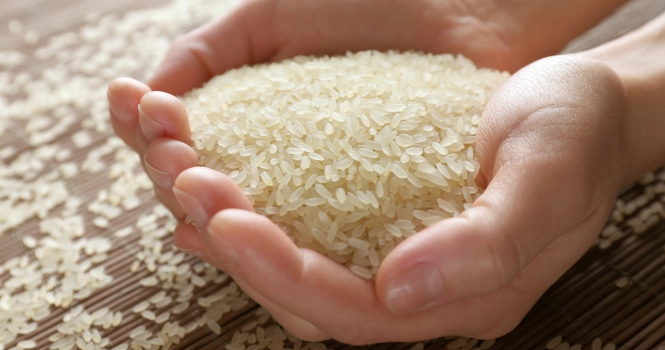Black Pepper

What is Black Pepper?
Black pepper (Piper nigrum) is a flowering vine from the Piperaceae family, native to South India. It’s extensively cultivated for its fruit, often referred to as a peppercorn, which is typically dried and used as a spice and seasoning. It is known for its strong, pungent flavor that comes from its active ingredient, piperine.
Growing Black Pepper
Black pepper plants grow best in warm, humid climates similar to their native environment. They require a lot of sunlight, well-drained soils rich in organic matter, and a temperature range of 20-30°C (68-86°F). The plants are typically propagated from cuttings and start producing fruit after 3-4 years.
The plant grows as a vine, often supported by poles or nearby trees, and can reach heights up to 10 feet or more. It has heart-shaped leaves and small, white flowers that develop into the green fruit (peppercorns).
The peppercorns are harvested when they’re still green. They’re then usually blanched briefly in boiling water, which helps to clean and prepare them for drying. The heat from the blanching process also activates enzymes in the fruit that turn it black during the drying process. After blanching, the peppercorns are spread out in the sun to dry for several days, turning black and wrinkly.
In terms of plant health, black pepper plants are susceptible to a number of diseases and pests, such as the foot rot disease caused by Phytophthora species, and various types of mites and insects. Regular monitoring and good agricultural practices are essential for successful pepper cultivation.

Nutritional Information of Black Pepper
Black pepper, or Piper nigrum, is not typically consumed in large enough quantities to provide substantial nutritional value.
However, it does have some nutrients in trace amounts. A teaspoon (about 2 grams) of ground black pepper can be roughly considered to have the following nutritional content:
- Calories: 5
- Protein: 0.2 grams
- Fat: 0.1 grams
- Carbohydrates: 1.3 grams
- Fiber: 0.5 grams
- Vitamin K: 3 micrograms (about 3% of the daily recommended intake)
- Iron: 0.4 milligrams (about 2% of the daily recommended intake)
- Calcium: 11 milligrams (about 1% of the daily recommended intake)
it is most valued for its active compound piperine, which is known to enhance absorption of certain nutrients, such as selenium, B vitamins, and beta-carotene, in the digestive tract. Piperine also has anti-inflammatory and antioxidant properties, which may offer some health benefits.
5 Health Benefits of Black Pepper
Black pepper, apart from its role as a spice in various cuisines, offers numerous potential health benefits owing to its rich nutrient profile and the active compound piperine. Here are five health benefits:
1. Improves Digestion:
It can stimulate the digestive juices and enzymes, thereby promoting digestion. It can also help to reduce indigestion and prevent issues like constipation and diarrhea.
2. Has Antioxidant Properties:
Research has shown that piperine, the active compound in black pepper, possesses antioxidant properties. These properties can protect cells from harmful free radical damage, potentially reducing the risk of chronic diseases like heart disease and cancer.
3. Enhances Nutrient Absorption:
Piperine has been found to enhance the bioavailability of other nutrients like vitamins A and C, selenium, curcumin, and others, improving overall nutrition.
4. May Help Control Blood Sugar:
Some studies have suggested that piperine in black pepper can help regulate blood sugar metabolism, which may be beneficial for those with diabetes.
5. Anti-inflammatory Effects:
Chronic inflammation can lead to various health problems, including heart disease, cancer, and diabetes. Piperine in black pepper has been shown to have anti-inflammatory properties, potentially helping to mitigate these risks.
It’s important to remember that while black pepper can have health benefits, it’s typically consumed in small amounts. It can contribute to a healthy diet, but it shouldn’t be relied upon as a primary source of nutrients or a treatment for health conditions. Always consult with a healthcare provider before using it or any other food as part of a treatment plan.
Black pepper isn’t the only spice known for its healing potential. Cayenne pepper, for example, contains capsaicin — a compound that’s being studied for its ability to relieve headaches by blocking pain signals.
👉 Explore how cayenne pepper may help with headaches.
Side Effects of Black Pepper
While black pepper is generally safe when used in culinary amounts, excessive consumption may lead to some potential side effects:
1. Gastrointestinal Problems:
Excessive intake may lead to irritation of the gut lining, resulting in symptoms like stomach ache, dyspepsia, or even gastric ulceration.
2. Allergic Reactions:
Although rare, some people may have an allergy to black pepper, which could lead to skin rashes, itching, swelling, or respiratory problems.
3. Drug Interactions:
The active compound in black pepper, piperine, may interact with certain medications and enhance their absorption, potentially leading to overdose.
4. Pregnancy and Breastfeeding:
While typically safe in food amounts, high doses of black pepper could potentially pose risks during pregnancy and breastfeeding. Always consult a healthcare provider before using large amounts.
5. Skin Irritation:
It can be irritating to the skin and eyes. Be cautious when handling, especially in its ground or oil form.
How Black Pepper is Used?
1. Culinary Use:
It is widely used as a spice and seasoning in cuisines around the world. It’s used in its whole, cracked, or ground form to flavor dishes.
2. Medicinal Use:
Traditional medicine systems like Ayurveda have long used black pepper for its potential health benefits, including relief from respiratory disorders, coughs, colds, constipation, indigestion, anemia, and impotency.
3. Preservation:
Due to its antibacterial properties, it is used in food preservation.
4. Aromatherapy:
Black pepper essential oil is often used in aromatherapy for its warming and stimulating qualities.
5. Cosmetics:
It’s also found in some skincare and beauty products for its potential antioxidant and antibacterial properties.
Frequently Asked Questions
What Is Black Pepper Good For?
It is primarily used as a spice to enhance the flavor of various dishes, but it’s also known for its potential health benefits.
These include improving digestion, promoting nutrient absorption, offering antioxidant and anti-inflammatory properties, and potentially helping control blood sugar.
Can We Use Black Pepper Daily?
Yes, it can be used daily in moderation as a part of your diet. It’s generally safe to consume and can add a burst of flavor and potential health benefits to your meals.
However, it’s crucial to consider that while black pepper is beneficial, excessive consumption might cause some adverse effects like gastrointestinal issues.
What Is the Best Time to Eat Black Pepper?
There’s no specific best time to consume it. It can be incorporated into meals throughout the day as a flavor enhancer.
Some people also like to start their day with a dash of it in warm water or tea, as it’s believed to kick-start their metabolism. However, more research is needed to validate this claim.
Is Black Pepper Heat or Cold?
In terms of Ayurveda, black pepper is considered a warming spice. It’s believed to increase heat in the body due to its pungent flavor and heating quality.
This is why it’s often used in recipes during the winter months or in cooler climates. Scientifically, black pepper is known to stimulate metabolism, which can create a sensation of warmth.
Who Should Not Take Black Pepper?
It is safe for most people when taken in moderate amounts, but certain individuals should be cautious:
- Those with gastrointestinal problems: It may irritate the gut lining, so people with conditions like ulcers, acid reflux, or other digestive issues might want to limit their intake.
- Those with a black pepper allergy: Some people may have an allergic reaction to black pepper, resulting in symptoms like skin rashes, itching, swelling, or difficulty breathing.
- Pregnant and breastfeeding women: While it is safe in normal food amounts, consuming it in large amounts might pose a risk.
Is Black Pepper Good for Liver?
Research has suggested that the piperine content in it might have protective effects on the liver, potentially helping to prevent liver damage and improve its function. However, more research is needed to fully understand these effects.
What Is the Best Way to Consume Black Pepper?
It is most commonly used as a spice in cooking, adding a pungent flavor to a wide range of dishes. It can also be taken in supplement form or used in traditional medicine remedies. Grinding fresh peppercorns just before use can help to preserve the flavor and potential health benefits.
Does Black Pepper Cause Acidity?
While it can stimulate the production of stomach acid, which aids digestion, it doesn’t typically cause acid reflux or other acidity problems unless consumed in excessive amounts.
Which Pepper Has the Most Benefits?
All types of peppers, including black, white, bell, and chili peppers, have health benefits. However, they each offer different nutrients and compounds. For example, chili peppers are a good source of capsaicin, which has pain-relieving properties, while it is known for its piperine content, which enhances nutrient absorption.
Is Black Pepper Good for Your Heart?
It may contribute to heart health due to its antioxidant and anti-inflammatory properties, which can help reduce inflammation and oxidative stress, two major contributors to heart disease. Some research has also suggested that piperine may help to lower blood pressure and reduce cholesterol levels.
How Many Peppers Should I Eat a Day?
There’s no set recommendation for the number of peppers you should eat each day. You can include peppers as part of your balanced diet. Your intake depends on your individual taste preferences and tolerance, especially for hotter chili peppers.
Does Black Pepper Digest in Your Stomach?
While the body will not fully digest all components of black pepper, it absorbs and utilizes important compounds like piperine.
What Are the Side Effects of Black Pepper?
Potential side effects of consuming excessive amounts include gastrointestinal issues, skin irritation, allergic reactions, and potential drug interactions.
Can Black Pepper Aid in Digestion?
Yes, it can stimulate the production of stomach acid, which aids in digestion. It can also help to prevent issues like indigestion and constipation.
Does Black Pepper Have Anti-Inflammatory Properties?
Yes, it has anti-inflammatory properties. The compound piperine, found in black pepper, has been shown to possess anti-inflammatory effects, potentially helping to reduce inflammation in the body.
Can Black Pepper Cause Allergic Reactions?
Yes, though it’s rare, some individuals can have an allergic reaction to black pepper. Symptoms might include skin irritation, itching, difficulty breathing, swelling of the face, tongue, or throat, and in severe cases, anaphylaxis.
If you suspect you have a black pepper allergy, consult a healthcare provider.
What Are the Medicinal Uses of Black Pepper?
In traditional medicine, black pepper has been used for a variety of health-related purposes.
These include improving digestion, relieving coughs and colds, reducing inflammation, and improving absorption of other nutrients and compounds. However, more research is needed to fully understand these effects.
What Happens If You Consume Black Pepper Daily?
When consumed in normal culinary amounts, black pepper is safe and can be beneficial to health. Regular consumption may provide potential benefits like improved digestion, enhanced nutrient absorption, and anti-inflammatory effects.
However, excessive consumption may lead to some adverse effects, such as stomach irritation or an allergic reaction.
Does Black Pepper Help with Blood Pressure?
Some research suggests that piperine, the active compound in black pepper, might have blood pressure-lowering effects. However, more research is needed to confirm this effect and to determine how significant it might be.
Does Black Pepper Support Immune Function?
It may help to support the immune system. Its antioxidant properties can help to protect cells from damage, and it may also have antimicrobial properties that can help to combat harmful microorganisms.
Can Black Pepper Be Boiled?
Yes, you can boil it. People often add it to broths, soups, and other dishes as they cook.
However, if you want the best flavor, many recommend adding black pepper near the end of the cooking process. Prolonged heat can diminish its flavor and potential health benefits.
![]()











